 Bridging News
Bridging News
Preserving Heritage: A Man's Lifelong Dedication to Folk Culture Museum
Chongqing - At the Wucha Folk Museum in Xiaba Town, Jiangjin District, Chongqing, curator Pi Tianran preserves the rich heritage of the Sichuan-Chongqing region through a meticulously curated collection of 35,000 artifacts, each telling a unique story of the area's folk culture.
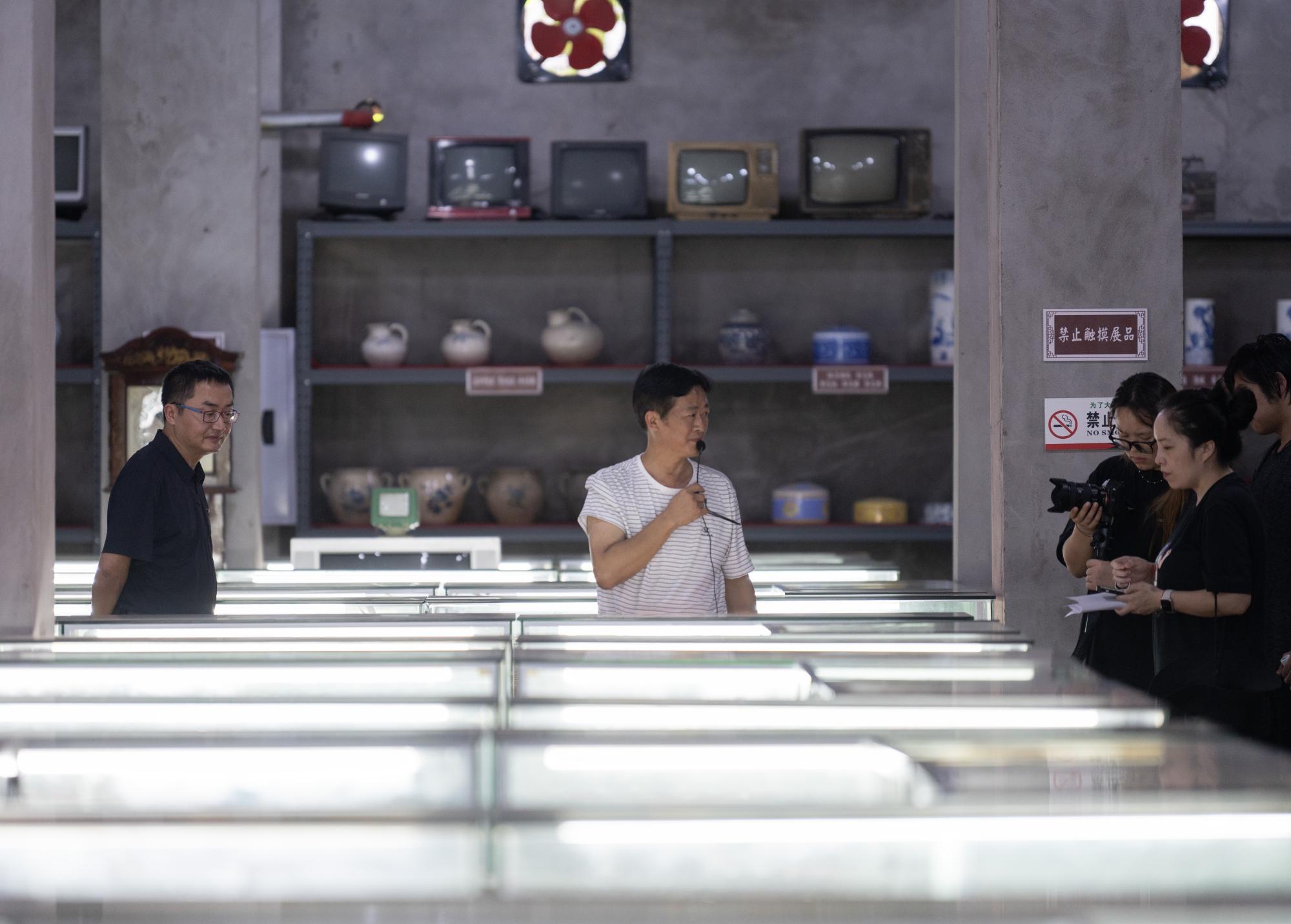
Curator Pi Tianran provides detailed explanations of the artifacts to visitors at the Wucha Folk Museum. (Photo/Yu Meijuan from Visual Chongqing)
Passion for collecting
Pi's journey as a collector began in 1987 while working at the agricultural technology station in Luohuang Town. With the wave of reform and opening-up sweeping across China, many traditional items started to vanish from daily life, relegated to the status of forgotten relics. Yet, for Pi, these items were not just objects of the past; they were vessels of ancestral memory, deserving of deep respect and continuous curiosity.
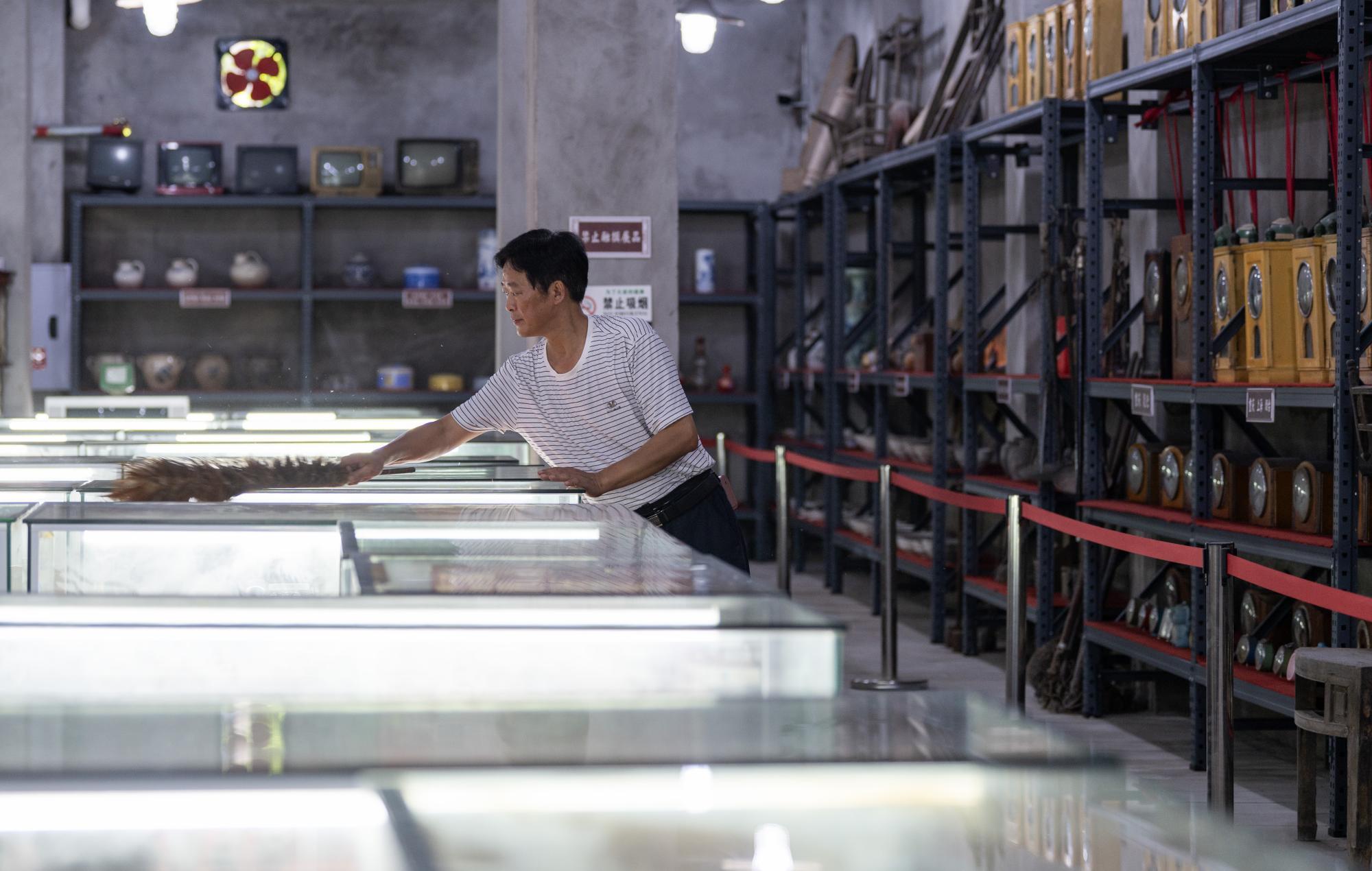
Curator Pi Tianran carefully dusts the Clock Culture section at the Wucha Folk Museum to maintain the preservation of the artifacts. (Photo/Yu Meijuan from Visual Chongqing)
In 1989, during a visit to a farmer's courtyard, Pi came across an old stone jar that immediately captivated him with its historical resonance. After some negotiation, he acquired the jar, marking the inception of a lifelong commitment to collecting. Over the years, Pi has amassed a vast and varied collection, ranging from ceramics to wood carvings, farming tools to timepieces, each piece a testament to his enduring dedication to preserving folk culture.
Story-telling artifacts
The Wucha Folk Museum is meticulously organized into four distinct sections, covering a total area of 1,400 square meters. The collection encompasses a wide array of items, including agricultural tools, carved artworks, ceramics, clocks, communication devices, and more. Visitors are transported through time, journeying back to an era when material possessions were modest but emotional bonds profound.
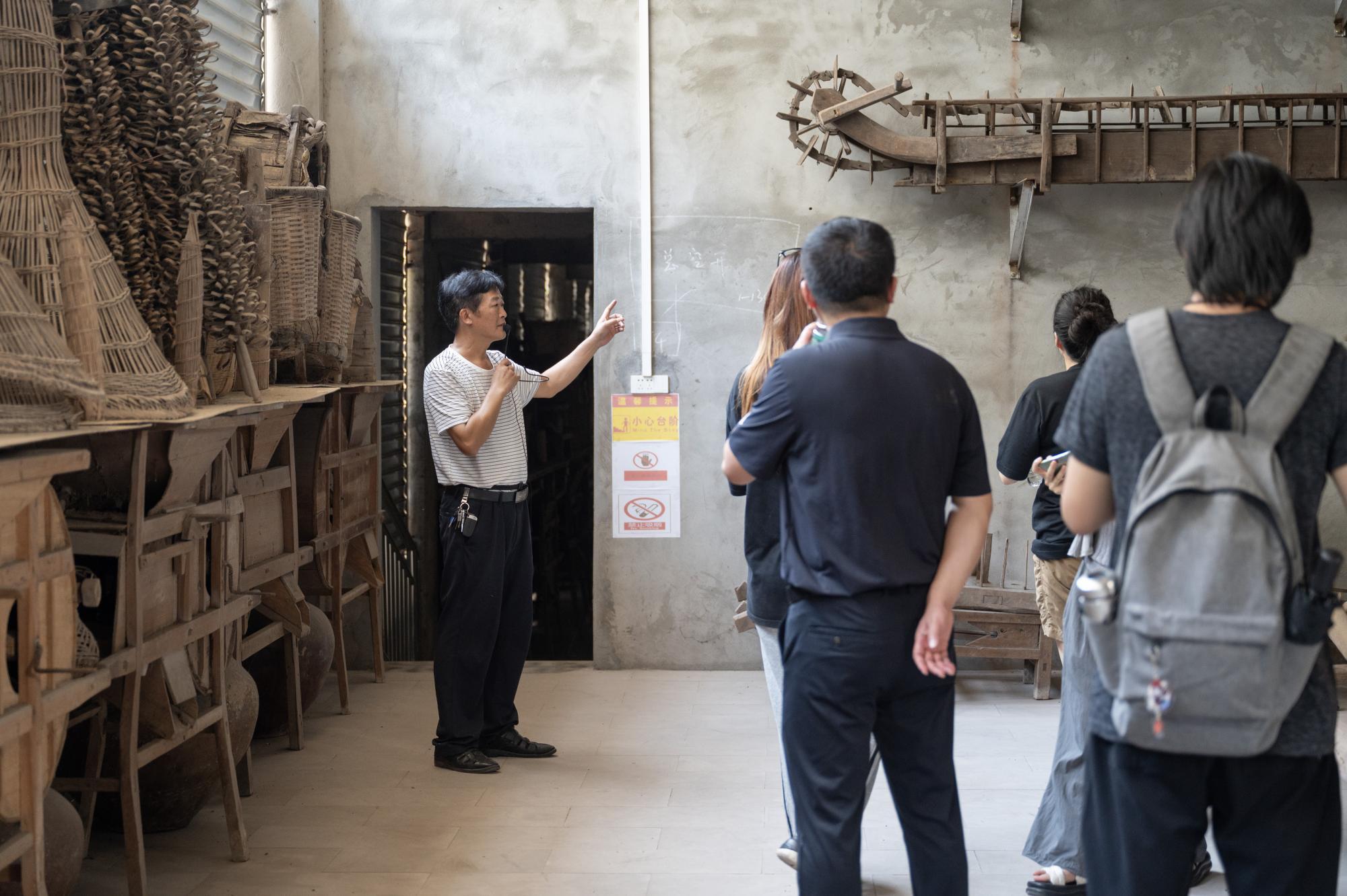
Curator Pi Tianran passionately explains the history behind the artifacts to visitors at the Wucha Folk Museum. (Photo/Yu Meijuan from Visual Chongqing)
Pi highlights agricultural culture as one of the collection's cornerstone themes. "These are the back baskets used by mountain farmers to carry goods," he explained. Here is a hand-cranked water ladder pump from the 1920s and 1930s, and this is a carrying box from the 1950s and 1960s, used to store bedding during weddings." Each artifact encapsulates the memories of a bygone era.
When asked about the museum’s most prized possession, Pi thoughtfully responded that every item in the museum holds immense value to him, each with its own impressive story. He pointed out a pair of customized Plum Blossom brand couple watches. These watches lie serenely in their display case, serving as a lasting symbol of a love story that will never fade.
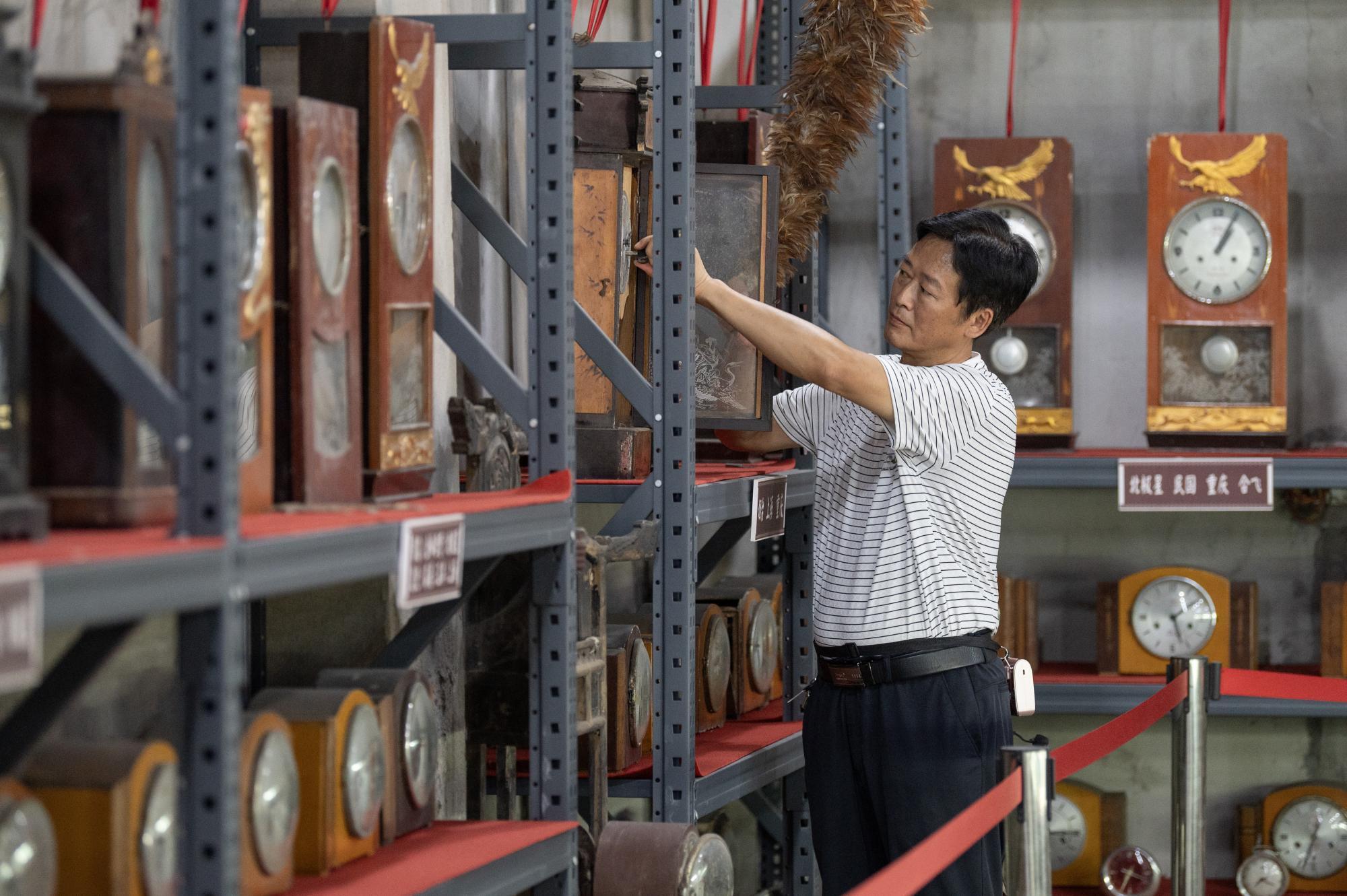
Curator Pi Tianran carefully dusts off artifacts at the Wucha Folk Museum to ensure their preservation. (Photo/Yu Meijuan from Visual Chongqing)
From a personal vision to a community legacy
In 2021, the Wucha Folk Museum was officially established, realizing Pi Tianran's long-held dream. Pi personally oversees every aspect of the museum, from curating the collections to welcoming visitors, all without charging a fee. Despite the absence of admission fees and formal marketing efforts, the museum's reputation has flourished through word of mouth, drawing thousands of visitors each year.
Pi's greatest satisfaction is witnessing the growing number of parents and educators bringing children to explore the museum. The curiosity shining in the eyes of these young visitors only deepens his commitment to preserving and passing down the region's folk traditions.
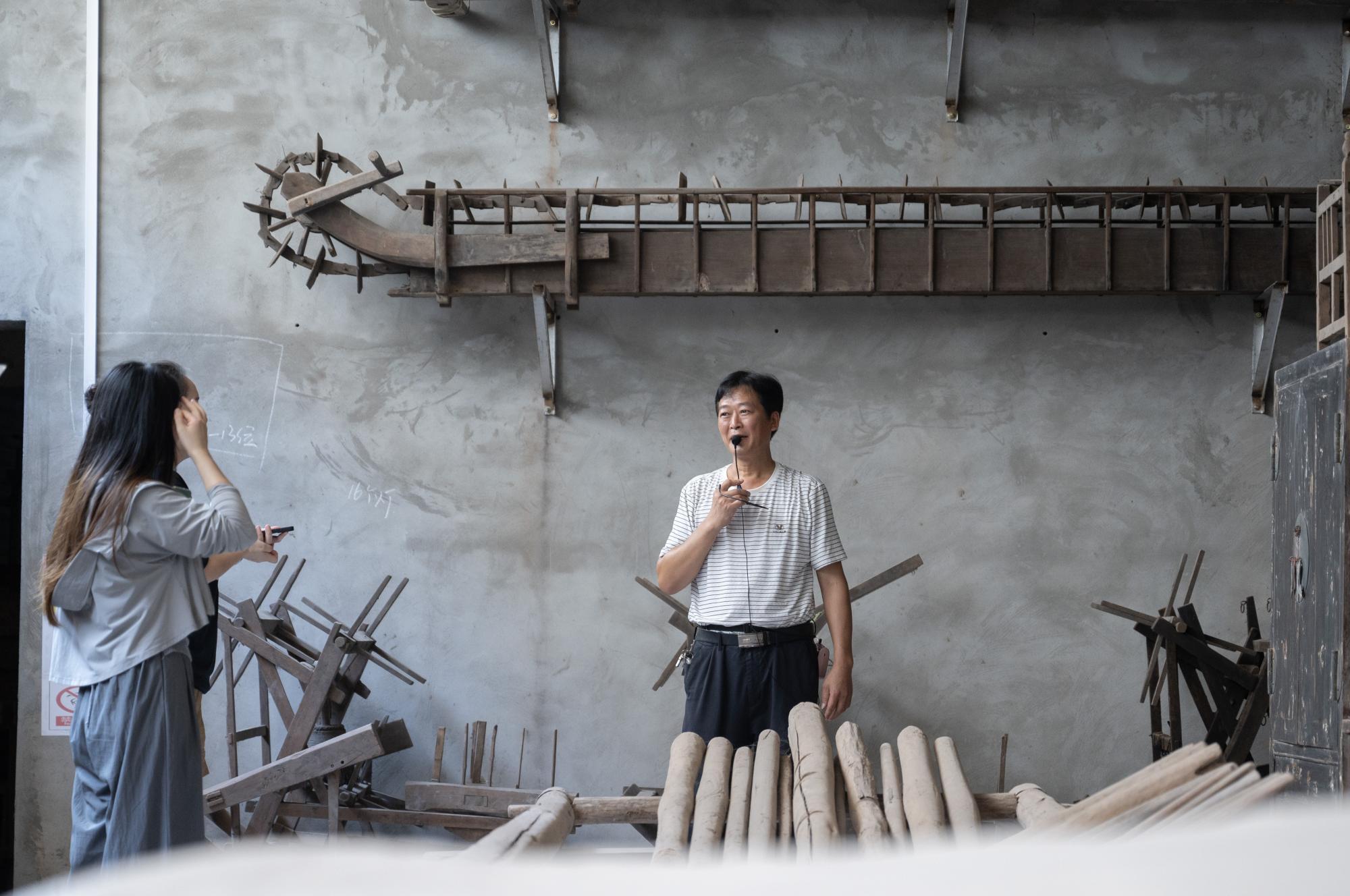
Curator Pi Tianran passionately explains the historical significance of his collection to visitors at the Wucha Folk Museum. (Photo/Yu Meijuan from Visual Chongqing)
Today, the Wucha Folk Museum has earned recognition as a Rural Tourism Demonstration Site by the Chongqing Municipal Commission of Culture and Tourism Development and the Chongqing Municipal Commission of Agriculture and Rural Affairs. Additionally, the Jiangjin District Xiaba Town government has integrated the museum into the New Era Civilization Practice Service Center, designating it as a branch of the cultural center. Plans are underway to provide financial support to further extend the museum's reach, enabling more people to experience the rich folk culture of the Sichuan-Chongqing region.
Pi has expressed his intent to continue this work well into his later years, aspiring to preserve and showcase the tangible remnants of history until he reaches the age of 80. Through these artifacts, he hopes to foster a deeper appreciation and understanding of the traditional folk culture that has shaped the Sichuan-Chongqing region.
 Related Stories
Related Stories